Women's Health Screening
Last updated: Feb 20, 2026
What Does Health Screening Mean?
The importance of health screenings is especially vital for women. These preventive checks are essential for identifying potential health problems at an early stage, which can lead to better health outcomes and an improved quality of life.

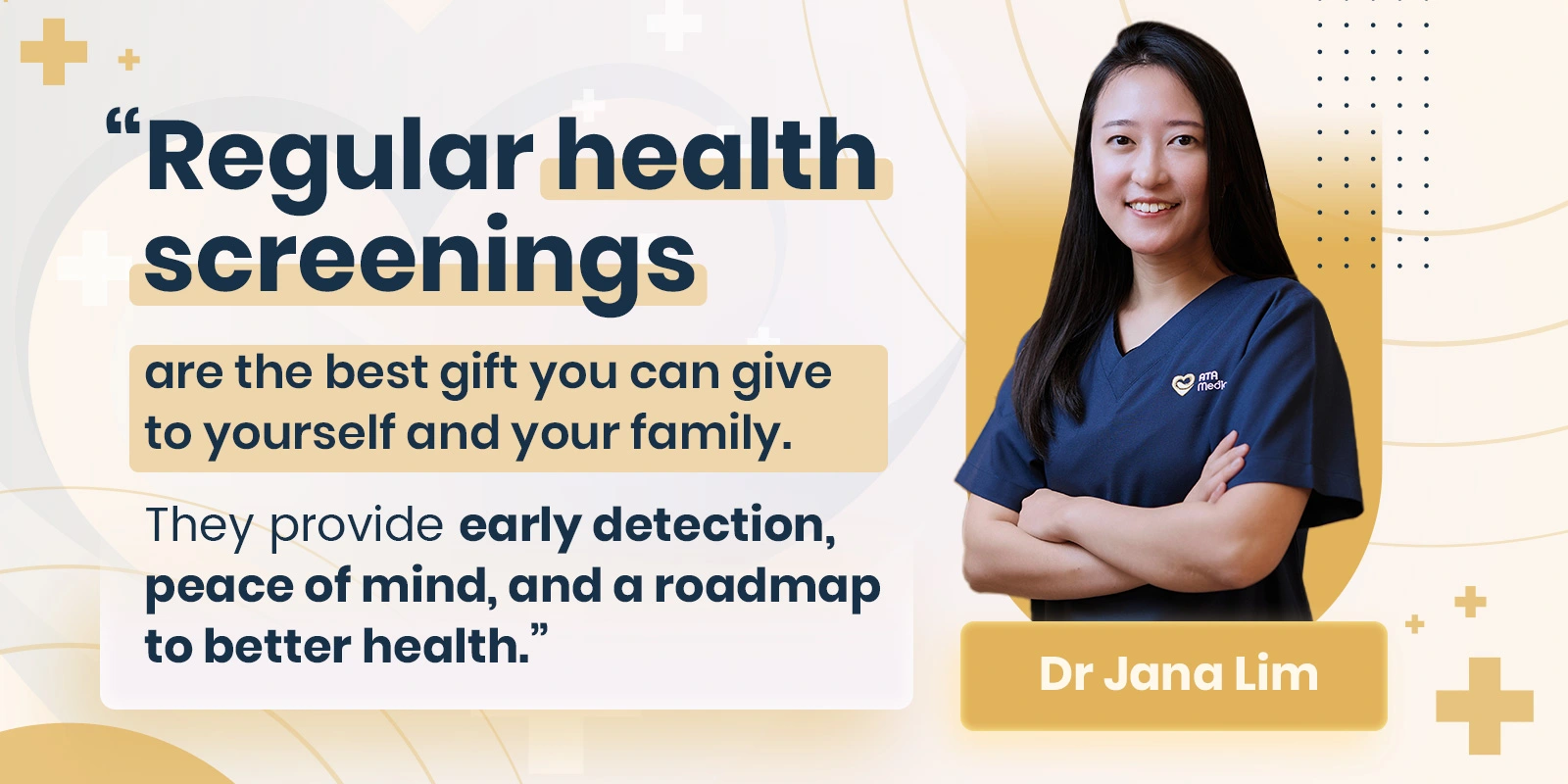
Common Women Health Concerns
Breast Cancer
Breast cancer is one of the top cancers in Singapore, affecting up to 29.7% of all female cancers. Early detection can improve treatment success rates. Key risk factors include genetics, age, and lifestyle choices. Learn more about cancer screening and diagnostic imaging.
Key Risk Factors
Understanding the risk factors for breast cancer is crucial for prevention and early detection. These factors can be categorised into those that are non-modifiable and those that are lifestyle-related.
- Non-Modifiable Risk Factors: These include age, genetics, and family history. Women with a first-degree relative (mother, sister, or daughter) who has had breast cancer are at a higher risk. Furthermore, genetic mutations such as BRCA1 and BRCA2 significantly increase the risk.
- Lifestyle Choices: Factors such as alcohol consumption, obesity, and lack of physical activity have been linked to an increased risk of developing breast cancer. Conversely, maintaining a healthy weight, engaging in regular exercise, and limiting alcohol intake can help reduce this risk.
Cervical Cancer
Cervical cancer, ranking as the 10th most common cancer among women in Singapore, poses a significant health risk. However, it stands out as one of the most preventable types of cancer, primarily due to its strong link with the Human Papillomavirus (HPV) and the availability of effective screening methods and vaccines. Understanding this connection, alongside the implementation of regular screenings and vaccinations, can drastically reduce the incidence of cervical cancer.
Osteoporosis: The Silent Threat to Women's Health
Osteoporosis, a condition characterised by weakened bones that are more prone to fracture, poses a significant health risk, especially to women post-menopause. This condition is particularly insidious because it can progress unnoticed until a bone fractures, often with serious consequences. Learn more about bone density testing and osteoporosis management.
Heart Disease
Heart disease, which is the leading cause of death among women both worldwide and in Singapore,
highlights a significant health issue that requires increased awareness of appropriate heart health
screenings. This condition affects the lives of 1 in 3 women, emphasizing its serious
impact on women's health and the need to address it promptly.
Both men and women can experience classic symptoms of heart disease, such as severe chest pain,
sweating, and dizziness. Women may also notice less common signs, including:
- Shortness of breath
- Nausea and vomiting
- Back, neck, or jaw pain
- Fatigue
They may also tend to downplay these symptoms and might delay or avoid consulting a doctor. This delay can lead to postponed recognition and management of the condition.
Recommended Health Screenings for Women
Cervical Cancer Screening
A Pap smear, also known
as a Pap test, is a screening procedure for cervical cancer that examines cells from the cervix for
abnormalities that may be indicative of cervical cancer or precancerous conditions.
The HPV test, on the other hand, screens for the presence of human papillomavirus (HPV), a virus
that can lead to cervical cancer.
| Age Group | Recommended Screening & Frequency |
|---|---|
| 25 to 29 years old | A Pap smear is recommended for this age group. If normal, the test should be repeated every 3 years. |
| 30 to 69 years old | An HPV test is recommended for this age group. If normal, the test should be repeated every 5 years. |
Vaccinations for cervical cancer are also available.
Breast Cancer Screening
A mammogram is an
X-ray of the breast used
primarily to screen for breast cancer. It can detect tumours that are too small to be felt and is
recommended for women over the age of 40 for early detection of breast cancer.
Ultrasound of the breast is a non-invasive procedure that uses sound waves to create images of the
breast tissue. It is often used in conjunction with mammograms to evaluate breast abnormalities or
for women with dense breast tissue where mammograms are less effective.
| Age Group | Frequency |
|---|---|
| 40 to 49 years old | Mammogram annually. |
| 50 years old and above | Mammogram every 2 years. Costs are also MediSave-claimable. |
Bone Density Testing for Osteoporosis
A bone mass density test, also known as a bone density scan or DEXA
scan, is a non-invasive diagnostic tool used to measure the density of minerals (such as
calcium) in your bones. This measurement reflects the strength and thickness (mass) of your bones
and is crucial for diagnosing osteoporosis, a condition where bones become weak and fragile.
Women over 65 or younger women at high risk should consider testing to assess
osteoporosis risk and bone health.
Blood Pressure Screening
Regular blood pressure screenings are essential for early detection of hypertension, often dubbed the "silent killer" due to its asymptomatic nature but significant role in increasing heart disease risk. Recommended to start by age 18, these screenings are a crucial step in proactive cardiovascular health management.
Cholesterol Check
Monitoring cholesterol levels is a vital health measure for women, especially
for those
with risk
factors for heart disease, such as a family history of the condition, high
blood pressure, smoking,
or obesity.
For women without specific risk factors, it is generally recommended to begin regular cholesterol
screenings at the age of 40. However, for those at higher risk, screenings should commence earlier
and be conducted more frequently. These checks involve a simple blood test that measures total
cholesterol, LDL cholesterol, "good" HDL cholesterol, and triglycerides.
Diabetes Screening
Diabetes screening
is a
critical health measure for detecting both type 1 and type 2 diabetes,
conditions characterised by high levels of sugar in the blood due to the body's inability to produce
or properly use insulin. For individuals aged 40 and above, it is advised to undergo screening once
every three years to catch any early signs of the disease.
Younger individuals are not exempt; those with risk factors such as obesity, family history of
diabetes, or a history of gestational diabetes should also consider earlier and more frequent
screenings. Early detection through these screenings can facilitate timely intervention,
significantly reducing the risk of complications such as heart disease, kidney failure, and vision
problems.
Women Health Screening Packages in Singapore
We offer a diverse selection of health check-up packages tailored to meet the unique needs of women. Customization options are available to ensure you receive the specific screenings and assessments essential to your individual health requirements.
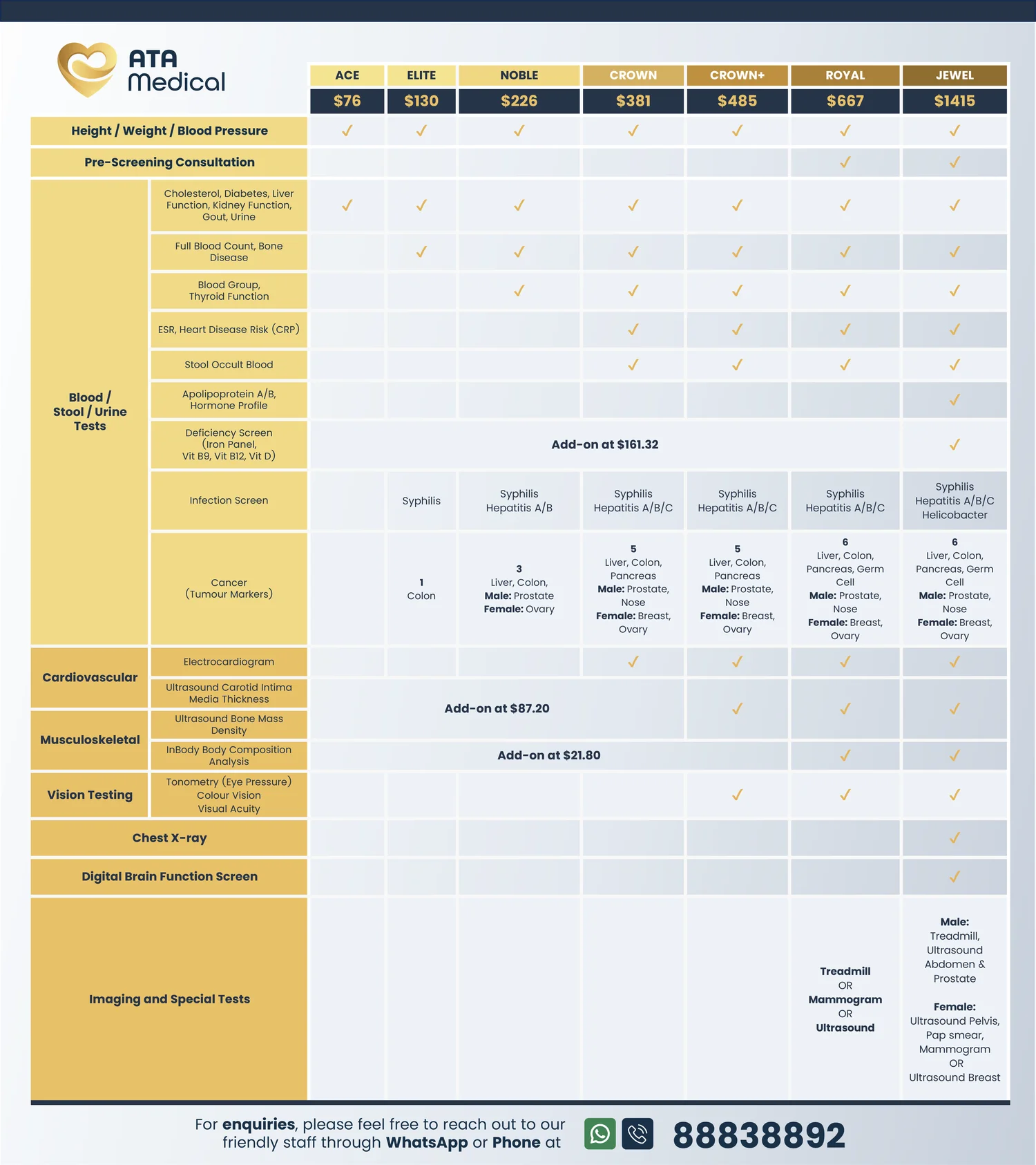
Why Choose ATA Medical?

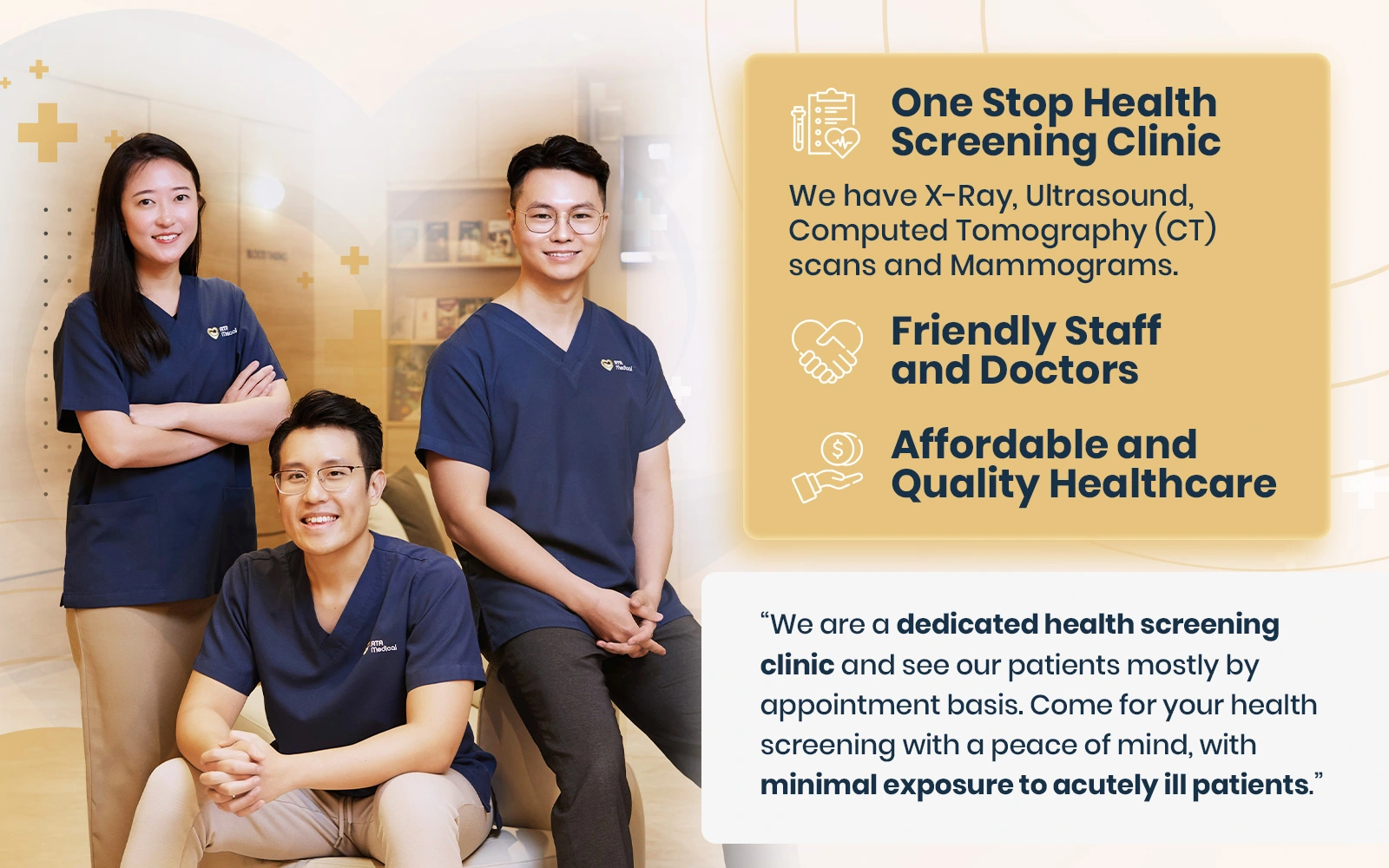
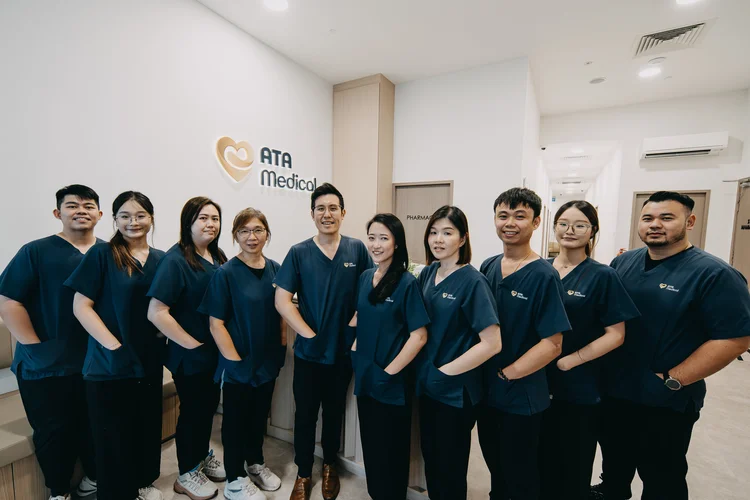

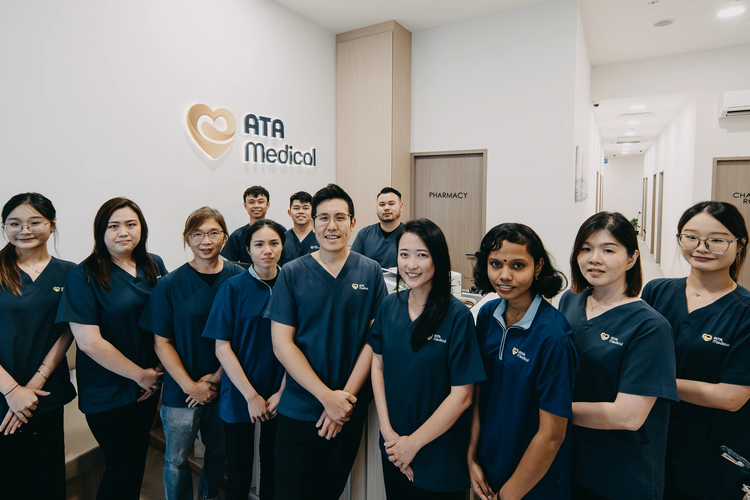



Delivering Care Patients Appreciate
Making a Difference Together
At ATA Medical, we strive to make a meaningful impact on every patient's health. With over 150,000 patients served, we are dedicated to fostering trust and enhancing well-being across our community.
Patients
Health Screening Tests
Corporate Screenings
Booking Your Women Health Screening With Us
ATA Medical @ Tanjong Pagar
Nearest MRT: Tanjong Pagar Station (EW15)
Contact Number: 6223 0682
Email: hi@atamed.sg
Opening Hours:
Mon - Fri: 8:30 AM to 12:30 PM, 1:30 PM to 5:30 PM
Sat: 8:30 AM to 12:30 PM
Sun & PH: Closed
ATA Medical @ Orchard
Nearest MRT: Orchard Boulevard Station (TE13)
Contact Number: 6223 0682
Email: camden@atamed.sg
Opening Hours:
Mon - Fri: 8:30 AM to 12:30 PM, 1:30 PM to 5:30 PM
Sat: 8:30 AM to 12:30 PM
Sun & PH: Closed
ATA Medical @ Jurong
Nearest MRT: Jurong East MRT Station (NS1/EW24)
Contact Number: 6348 6292
Email: jurong@atamed.sg
Opening Hours:
Mon - Fri: 8:30 AM to 12:30 PM, 1:30 PM to 5:30 PM
Sat: 8:30 AM to 12:30 PM
Sun & PH: Closed


